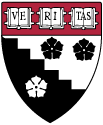Reflections on Scratch Educator Meetup @ MIT: Saturday, March 19, 2011
- Login to post comments
Thanks to everyone who was able to join us at MIT for yesterday's Scratch educator meetup! Here are some notes, reflections, and next steps...
1. Things we saw in Show & Tell
Videos of the Show & Tell presentations will be posted later this week. In the meantime, here are some notes:
- Rosemary Slattery shared some great student work. First, she showed a project that one of her students made, based on the Orange Square, Purple Circle activity. This student took the orange square, purple circle activity in an unexpected direction by creating a musical guessing game, programming songs note-by-note. You can check out his project online at http://scratch.mit.edu/projects/BBoyRiser/1655816. Rosemary also shared the St. Patrick's Day themed mazes her students had created, such as http://scratch.mit.edu/projects/LucKy_LKY/1661821
- Sandie Bleecker shared her ongoing explorations with the PicoBoard. She described how she turned to her own kids for ideas -- and how they co-developed a PicoBoard-based joystick.
- Janet Dee talked about the power of students sharing their work with each other and building on each other's work. She shared a particular example -- Jimmy's circus game -- and how that project evolved with different people's contributions
- Abby Miller shared handouts that she had developed to support her students getting started with Scratch -- and talked about her surprise when the students did everything other than what was on the handouts. :) I thought this led to a great discussion about structure and support.
2. For the beginners
If yesterday was your first experience with Scratch (or you want a refresher), here are some resources that you might want to check out, to support your further explorations with Scratch.
- Getting started guide - How to make a first Scratch project.
- Scratch cards - Twelve cards that illustrate a basic Scratch technique (such as keeping score or playing with graphic effects).
- Design studio activities - 16 suggestions for design activities, such as making a project that includes the "random" block or making a project that has an orange square and purple circle.
- Creative computing workshop - This is a sequence of activities for getting started with Scratch. Any feedback on the sequence and activities would be appreciated. How could it be changed to be more useful?
3. Intermediate breakout
I really enjoyed the intermediate breakout session. We sat around and discussed a wide range of topics: debugging, remixing, broadcasting, and more.
For debugging, we spent some time discussing what debugging is and strategies for debugging. Here's a list of strategies that we developed in the course of our discussion (which involved looking at debugging activities, talking about our own experiences, and trying debug a student's project):
- use storyboards to think about the steps that would be involved
- talk through goals and approach
- explain to someone else what you want to have happen
- peer editing
- being incremental
- testing in a modular way
- examine how different stacks of code get started
- print out the scripts to see them side by side
- put "markers" in the code, debugging flag
- think about properties of the tool (e.g. rotation, costume center)
- annotate your work with comments
- single stepping ("Start single stepping" under the Edit menu, which highlights what blocks are being run)
For remixing (taking someone else's project, changing it, and sharing the modified -- or "remixed" -- version), we looked at remixes of a project "For the people of Japan". Under any remixed project, there's a count of the remixes, which is a link to a visualization of the remixes, like this one.
4. Future events
There are lots of ways to keep participating in ScratchEd professional development:
- Hang out on ScratchEd
- Come to the monthly meetups - Register for next month's meetup and be notified about future events through the quarterly newsletter.
- Attend the monthly webinars - The next webinar is all about computational concepts and is taking place on Monday, March 28 at 7pm EST.
- More hands-on Scratch - I'll be facilitating a hands-on Scratch workshop this Thursday from 1pm to 5pm at the ICA, if you're interested in getting more Scratch practice.
5. What's next?
We asked people to record their thoughts about what might be next for them and might be next for our next meetup. Here's what was shared on sticky notes:
- I'm going to make my own Scratch cards and a rubric (or several) for evaluating student projects.
- Next for me - learn through creating projects.
- Would love to see samples or examples of operators and sensing palettes.
- Next for me - to organize what I learned from leading the Scratch teacher professional development.
- Challenges - What's next!
- Next meetup: Try to create a new project with support, after playing on my own for a month.
- Exploring use of Scratch project remixes.
- Next for meetup: More of everything.
- Get colleagues on board.
- I would like to see other people's materials and "trade" projects, assignments, ideas, rubrics, handouts, etc.
- I'm interested in the incorporation of media elements. Also, understanding how to integrate procedures from small projects into programs.
Thanks again for attending today's event. We look forward to seeing you at MIT in April and on ScratchEd in the interim!
K


You can view videos of the Show & Tell presentations here.